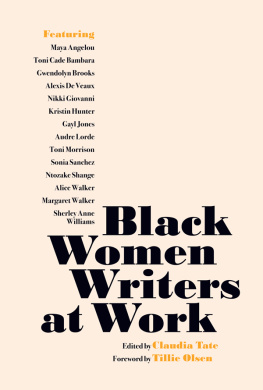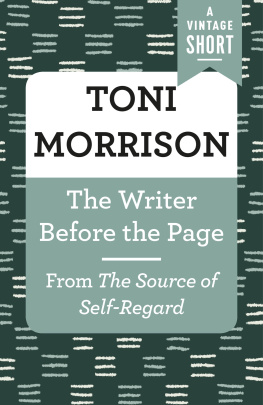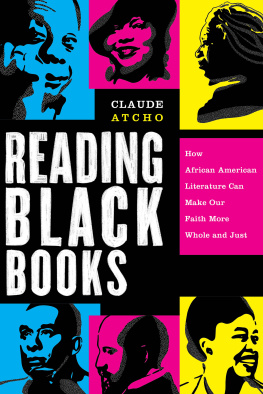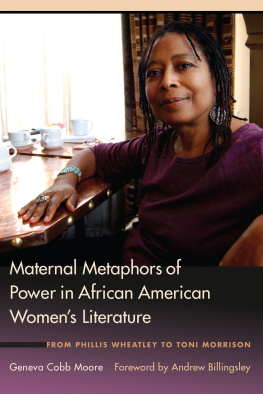Geneva Cobb Moore - Maternal Metaphors of Power in African American Womens Literature: From Phillis Wheatley to Toni Morrison
Here you can read online Geneva Cobb Moore - Maternal Metaphors of Power in African American Womens Literature: From Phillis Wheatley to Toni Morrison full text of the book (entire story) in english for free. Download pdf and epub, get meaning, cover and reviews about this ebook. City: Columbus, year: 2017, publisher: University of South Carolina Press, genre: Science. Description of the work, (preface) as well as reviews are available. Best literature library LitArk.com created for fans of good reading and offers a wide selection of genres:
Romance novel
Science fiction
Adventure
Detective
Science
History
Home and family
Prose
Art
Politics
Computer
Non-fiction
Religion
Business
Children
Humor
Choose a favorite category and find really read worthwhile books. Enjoy immersion in the world of imagination, feel the emotions of the characters or learn something new for yourself, make an fascinating discovery.

- Book:Maternal Metaphors of Power in African American Womens Literature: From Phillis Wheatley to Toni Morrison
- Author:
- Publisher:University of South Carolina Press
- Genre:
- Year:2017
- City:Columbus
- Rating:4 / 5
- Favourites:Add to favourites
- Your mark:
Maternal Metaphors of Power in African American Womens Literature: From Phillis Wheatley to Toni Morrison: summary, description and annotation
We offer to read an annotation, description, summary or preface (depends on what the author of the book "Maternal Metaphors of Power in African American Womens Literature: From Phillis Wheatley to Toni Morrison" wrote himself). If you haven't found the necessary information about the book — write in the comments, we will try to find it.
Geneva Cobb Moore deftly combines literature, history, criticism, and theory in Maternal Metaphors of Power in African American Womens Literature by offering insight into the historical black experience from slavery to freedom as depicted in the literature of nine female writers across several centuries.
Moore traces black women writers creation of feminine and maternal metaphors of power in literature from the colonial-era work of Phillis Wheatley to the postmodern efforts of Paule Marshall, Alice Walker, and Toni Morrison. Through their characters Moore shows how these writers re-created the identity of black women and challenge existing rules shaping their subordinate status and behavior. Drawing on feminist, psychoanalytic, and other social science theory, Moore examines the maternal iconography and counter-hegemonic narratives by which these writers responded to oppressive conventions of race, gender, and authority.
Moore grounds her account in studies of Wheatley, Harriet Jacobs, Charlotte Forten Grimk, Jessie Fauset, Nella Larsen, and Zora Neale Hurston. All these authors, she contends, wrote against invisibility and powerlessness by developing and cultivating a personal voice and an individual story of vulnerability, nurturing capacity, and agency that confounded prevailing notions of race and gender and called into question moral reform.
In these nine writers construction of feminine imagesreal and symbolicMoore finds a shared sense of the historically significant role of black women in the liberation struggle during slavery, the Jim Crow period, and beyond.
A foreword is offer by Andrew Billingsley, a pioneering sociologist and a leading scholar in African American studies.
Geneva Cobb Moore: author's other books
Who wrote Maternal Metaphors of Power in African American Womens Literature: From Phillis Wheatley to Toni Morrison? Find out the surname, the name of the author of the book and a list of all author's works by series.








